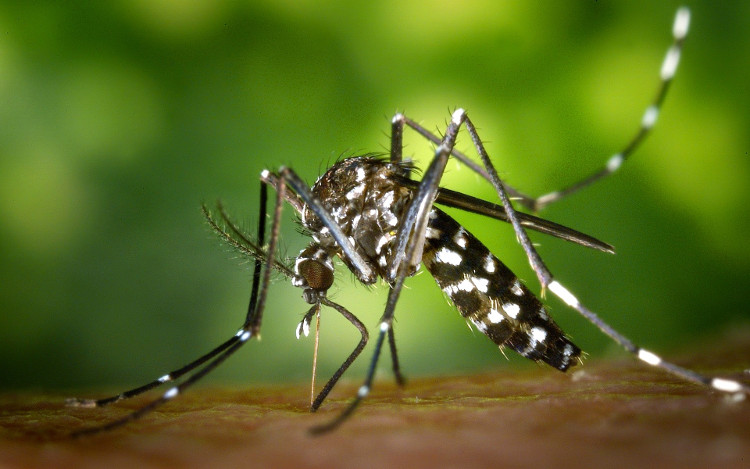Mosquitoes can be trained to not burn people
American scientists can train mosquitoes so that they do not burn people, as effectively as using insect repellents like DEET.
Mosquitoes are insects that kill more people than any other animal in the world every year. They are the agents that spread dangerous diseases, making people have to "fight mosquitoes" , according to Futurism. A recent experiment may be a turning point in this war because it equips us with a potential weapon, the ability to train mosquitoes.

Mosquitoes have the ability to learn and remember.(Photo: Pixabay).
According to a study by scientists at the University of Washington (USA) in the journal Current Biology on January 25, when you miss a mosquito burning you, it will link the scent on your body with the experience. Be life-threatening to avoid you in the future. This is the first evidence that mosquitoes are capable of learning and remembering.
"They're like Pavlov's mosquitoes , " said Jeff Riffell, the study's lead author, referring to the famous experiment of conditional reflexes of Ivan Pavlov on dogs. This is like mosquitoes trained to avoid someone.
Mosquitoes are attracted by certain scents. In general, human scents are especially attractive to mosquitoes.
When someone beats a mosquito, they often create small vibrations on the skin that temporarily disrupt the mosquito's blood-sucking efforts. To conduct research, scientists attract children with the scent of humans. They then recreated the vibrations above to prevent mosquitoes from reaching the target for 20 minutes.
As a result, mosquitoes will fly away from the scent within 24 hours. This level of effectiveness can even be compared to DEET-containing insect repellents available on the market today.
"In the future, we can use a recipe that includes not only insect repellents such as DEET but also some of the memory activation compounds of mosquitoes away from humans , " said Walter Leal, expert. studying the interaction between mosquitoes and humans at the University of California, Davis (USA), said.
- Mosquitoes know how to choose people to burn
- How do mosquitoes seek targets to burn?
- Why do mosquitoes love to burn humans?
- 5 reasons you get mosquito bites more than others
- Zika mosquitoes burn during the day while the Vietnamese are only caught at night
- Mosquitoes like people with more blood types?
- Why do humans not erase mosquitoes?
- Interesting findings about mosquitoes
- New research: Not blood, this is why mosquitoes choose people to burn
- Why are mosquitoes sucking blood from HIV, mosquitoes not sick?
- Mosquitoes 'like' people drinking beer
- 10 interesting things about mosquitoes
 Why do potatoes have eyes?
Why do potatoes have eyes? 'Tragedy' the world's largest carnivorous life: Death becomes ... public toilet
'Tragedy' the world's largest carnivorous life: Death becomes ... public toilet Tomatoes were once considered 'poisonous' for 200 years
Tomatoes were once considered 'poisonous' for 200 years Detecting microscopic parasites on human face
Detecting microscopic parasites on human face